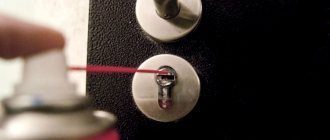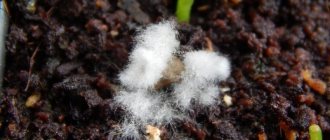Good afternoon, experienced and novice poultry farmers. Does your chicken coop smell like ammonia? What do you do when there is a smell in the coop? Let's face it, all chicken coops will smell at some point. Lots of furry little bodies depositing droppings all over the place are not the pleasant scents wafting through the air like a gentle spring breeze.
At some point, you will notice the smell of droppings in the coop. While you can't get rid of the smell completely, you can reduce it a lot. And I want to talk about this topic today.
You can't stop your chickens from pooping, but you can control the smell in your coop! I have found that simply opening the doors and windows can ventilate the coop enough to remove most of the stench.
A well-ventilated coop with proper ventilation will allow some fresh air in even when closed. The hood releases any unpleasant odors that have accumulated.
How to get rid of smell in a chicken coop
Ammonia is the main cause of unpleasant odors in the chicken coop. This pungent, suffocating gas begins to be released during the fermentation of chicken manure, straw and hay used as bedding. Ammonia is dangerous to the body and can lead to the death of the entire poultry population. Therefore, it is advisable to regularly clean and disinfect the room where chickens sit.
spring-cleaning
It is advisable to thoroughly clean the chicken coop at least once a year. The ideal period is spring and summer, when the room can be left open for ventilation for a long time.
- We expose the nests to the street;
- Remove the bedding;
- We wash the floor and any surfaces with which chicken droppings have come into contact.
- For better results, treat the cleaned surfaces with Bionex Anti-odor. If disinfection treatment is carried out, the biological product must be used after it.
General cleaning of the chicken coop must be carried out regardless of whether any measures are taken to eliminate odors in the chicken coop or not.
Weekly cleaning
Most droppings accumulate under perches; it is advisable to install there an improvised tray made of plywood, thick plastic film, or ideally a rubber mat. At the end of each week, the tray needs to be taken outside and the droppings scraped out. For a small chicken coop, the procedure takes no more than 5 minutes, but you can safely stay in the room without inhaling ammonia fumes.
Although this approach to eliminating unpleasant odors in a chicken coop brings results, it becomes more difficult as the population grows.
Using bacteria for the chicken coop
Wet flooring with droppings is an ideal environment for the development of pathogens that can cause a number of diseases. In addition, this is also the cause of the acrid smell in the chicken coop.
Biological preparations or biological preparations containing specialized strains of bacteria that are in a “sleep state” will help get rid of the pungent odor and suppress the potagenic environment. Bacteria, coming into contact with a nutrient medium for them, which is the droppings in the chicken coop, begin to actively feed on it and multiply. The advantages of such tools:
- Improve the sanitary and epidemiological situation by suppressing pathogenic and pathogenic microorganisms
- Eliminates unpleasant odor in the chicken coop
- Reduce the concentration of ammonia and other harmful gases in the air;
- Reduce financial and time costs for maintaining cleanliness (cleaning becomes easier and requires less time);
- Manure is processed (instead of hazard class III waste, ready-made fertilizer is obtained)
Traditional methods of neutralizing odor in a chicken coop
Surely you yourself have noticed that dry chicken droppings smell almost nothing. It is high humidity that provokes fermentation processes, and effective ventilation in the chicken coop will help make the air as dry as possible. To increase efficiency, fans can be installed in the air ducts (relevant for large poultry houses).
Agricultural lime will help neutralize odor during the rainy seasons (spring-autumn). The use of caustic slaked lime is prohibited. Mix lime at the rate of 500 g per 1 m² with straw, hay and sawdust, and use the resulting mixture as bedding. This bedding absorbs moisture more effectively and prevents rotting processes. Alternatively, lime can be spread over the floor in an even layer, then sprinkled with bedding.
Hydrogen peroxide is an effective remedy in the fight against unpleasant odors. Dilute peroxide with water in a ratio of 1 to 10, pour the resulting solution into a regular spray bottle and spray the surface of the litter. To neutralize ammonia, it is enough to carry out the procedure once a week.
Source
Reasons for disinfection
Various parasites are a pressing problem for chickens, and therefore for farmers. This is the main reason for preventive cleaning of chicken coops, which makes it possible to eliminate ticks and fleas at the stage of their appearance.
The premises for chickens are cleaned regularly, regardless of whether the chickens are sick or not. It is recommended to carry out at least 1 time per year. Experienced farmers advise disinfection every 2 months. Most breeders stop 1-2 times a year.
Without disinfection measures, pathogenic bacteria and microorganisms quickly develop in a room with droppings, food residues, bedding and feathers, and parasites take up residence.
An important condition for maintaining a healthy atmosphere is ventilation, otherwise a moldy environment is created where pathogenic bacteria actively multiply.
Ventilation in a chicken coop is very important.
Mechanical cleaning of the room and cells is an important procedure, but it does not allow the destruction of harmful microorganisms, so disinfection is used.
Even careful care of the chicken coop does not allow it to achieve an ideal hygienic condition. Chickens can hardly be called neat animals. All waste products: droppings, bedding, feathers, food - are scattered throughout the room, and along with them, bacteria.
Bacteria spread throughout the chicken coop along with waste products.
The risk of infection increases from contact with the outside world, since the owner himself can carry pathogenic bacteria on his clothes. Therefore, you should follow the basic rules for cleaning clothes, especially shoes.
To prevent the development of microbes, you can coat the walls with lime. It protects birds from germs to some extent. The preventive measure somewhat stops the development of microorganisms, but complete hygienic cleaning cannot be achieved in this way.
The walls of the chicken coop can be covered with lime, it will prevent the development of microbes
There is no smell of ammonia in the chicken coop. I disinfect with a cheap product
Ammonia smell in a chicken coop is a very common problem that a large number of people experience. It occurs due to fermentation of chicken droppings, which causes rotting of the hay and straw bedding. If nothing is done, the bird may develop various diseases that can lead to the death of the entire flock. Therefore, it is necessary to carry out regular cleaning and disinfection of the premises. Two very simple methods, which will be described below, will help you get rid of the ammonia smell.
In a chicken coop or pigsty
Rats in a chicken coop or pigsty are also not uncommon. There they are warm, happy, and have food. It can be too difficult to get rid of them on your own due to the fact that you can’t spread poison, since animals can eat it and you can’t set a trap, all for the same reason. You have to get creative and get rid of rats at home using more effective methods.
The first and most reliable way to get rid of rats is to call a specialist . Experts know exactly how and with what means to destroy rodents so that pets do not suffer from it. Or you will have to move the household outside for a while so that specialists can get rid of the rats.
The second method is electronic repellers . They can be found in specialized stores. They say that this remedy is quite effective in helping to get rid of rats in a chicken coop or pigsty. Such tools can work both on the basis of electromagnetic waves and on the basis of ultrasound. In any case, only the rats will feel bad from this, and when they leave, everyone will feel good.
Use of lime
In the autumn-winter period, hay and sawdust are used to create bedding. And so that it absorbs moisture better and does not start to rot for as long as possible, lime is added to it at the rate of 500 grams per square meter. First of all, it is scattered on the floor in an even layer, and only then the bedding is laid.
By using lime, you save yourself the hassle of cleaning up droppings every day. Firstly, this greatly simplifies caring for chickens, and secondly, this way you can maintain a higher air temperature in the chicken coop. You should not expect a significant increase, but the litter is capable of raising the temperature by a couple of degrees.
Using Hydrogen Peroxide
This method also works well. By treating your litter with hydrogen peroxide, you can get rid of the ammonia smell. Simply pour it into a spray bottle, diluting it with water in a ratio of 1 to 10, and spray the litter, sprinkling a small amount of fresh hay and sawdust on top. It will be enough to carry out the procedure once a week, and even less often in the summer.
The life hacks described above will greatly simplify raising and caring for chickens. They are time-tested and do not require significant financial investments, so you can safely use them. Thanks to them, the smell of ammonia in your chicken coop is not dangerous.
Source
How to get rid of smell in a chicken coop
Some summer residents and owners of country houses are hesitant to purchase chickens for raising on the farm, believing that they give off an unpleasant odor. However, here they are deeply mistaken. In fact, laying hens do not smell at all. And the stench can come from where they live, from the chicken coop. And this is quite natural. To rid yourself, and especially your neighbors, of the stench coming from the poultry house, you need to regularly clean the premises.
In an uncleaned chicken coop, bird droppings accumulate day after day, “giving off” ammonia. This smell not only causes discomfort to the owners and their neighbors, but also has a negative impact on the condition of the chickens themselves. If the house is not cleaned regularly, this can have a negative impact on the health and egg production of laying hens.
The chicken coop should be cleaned daily. If the birds spend the whole day outdoors, in the yard, cleaning their “home” is not difficult and this process only takes a few minutes. More serious cleaning and treatment of the premises is carried out every few weeks, preferably at least twice a month. It includes a complete replacement of bird bedding. The constant presence of laying hens in the chicken coop implies more thorough and more frequent cleaning.
This procedure will not only eliminate as much as possible the unpleasant odor emanating from the poultry house, ridding yourself and your neighbors of it, but also prevent the occurrence of diseases in chickens, a decrease in egg production, and also increase their productivity. Don't be afraid to have chickens on your property. You just need to approach the issue of their content with all responsibility. And this will definitely bear fruit. Fresh eggs are tasty and healthy, especially from your own healthy laying hens.
Technology
How to carry it out correctly and what means to use on a farm? Even the most effective remedy will not give the desired result if used incorrectly. In this article we will look at the entire process technology from start to finish.
Main parameters
Cleaning
All surfaces in the chicken coop are subjected to mechanical cleaning - droppings are removed from the floor and perches, litter, and dust is swept off the ceiling and walls. Then it is washed. It is advisable to do this with hot water with the addition of detergents, for example, a 2% soda ash solution. Particular attention is paid to the cleanliness of feeders and drinkers. After cleaning, you can begin disinfection.
Preparation for disinfection
Preparation for disinfection
The chicken coop is most often processed in the absence of birds, if such a possibility exists. The preparations used for disinfection are safe for birds, but in order to avoid an allergic reaction to the components in any individual (this happens rarely), it is better to drive the chickens outside.
During disinfection, it is better to drive the chickens outside
Depending on the condition of the litter in the coop, it can also be removed and then laid with new litter. This procedure is highly recommended, but if you carry out disinfection every 2 months, you can do without it. In general, clean the poultry house as much as possible from minor elements, especially those containing waste products of birds.
Old litter can also be removed
Also, as a preparatory measure, you need to take care of the availability of special clothing and respiratory protection. Ideally, a special overall is used; it is quite practical and prevents the drug from getting on the body and into the respiratory tract. Even taking into account the safety of the drugs, according to the manufacturers, it is better to avoid unnecessary contact with chemical compounds.
Wearing special protective clothing is necessary for your safety
Gloves, mostly made of rubber, are put on your hands. A respirator is put on the respiratory system. Sanitary cleaning of the chicken coop also involves regular cleaning, so you should take a broom, dustpan and brush with you.
Next, clean the walls, floor, and all internal elements of foreign substances, then wash them. It is better to use natural, safe preparations as a detergent, otherwise toxic fumes can harm the microflora of the chicken coop, and, accordingly, the health of the chickens. People often use plain, heated water with a small amount of apple cider vinegar.
The chicken coop must be cleared of foreign substances.
Some farmers finish the processing process at this point and do not go as far as disinfection. In this case, it is not possible to get rid of bacteria. You can use the method between disinfection procedures if they are carried out rarely, but it is better to still complete the procedure.
After treatment, you need to cover the walls with a fresh layer of lime. Then lay down new bedding. After completing the preparatory stage, you can begin disinfection.
Laying out new bedding
The litter must be dry!
To prevent ammonia from spreading into the air, it is best to keep chickens and other poultry on dry litter. It's easy to say. But there are several main sources of moisture in a chicken coop, which we will look at below.
What bird watering system do you use? Isn't it leaking? Leaking or improperly installed drinking containers will be a source of additional moisture.
Automatic drinkers. Make sure the edges of the cups are level with the bird's back. A properly installed nipple drinker will not only provide the chickens with clean water, but will also not spill on the floor.
Drinking water in buckets. This is more convenient than in basins and bowls. Chickens and other birds will paw into low drinking dishes and splash water. And the water quickly becomes polluted.
Is the roof leaking?
Rainwater entering the house will undoubtedly result in a strong ammonia odor. So make sure your roof is in good shape.
Humidity in the chicken coop. Some people notice depressing humidity during the summer months. Unfortunately, if you don't have an air-conditioned coop, there's nothing we can do to fix it. One thing we can do is to ventilate well.
If my coop gets humid or very hot in the summer, I install a fan. Ventilates faster!
Flies will attack. Another nuisance is that the smell of ammonia in the chicken coop will be constant. Terminator powder, which is safe for birds, animals and people, to control flies . The asking price is 300-350 rubles and all summer without flies!
In a house or apartment
Getting rid of rats in a private house or apartment on your own can be the most difficult. Rats, being very intelligent animals, voluntarily do not want to leave such a cozy place where you can always find food and a warm corner, especially if it is cold outside. But such neighbors do not seem personable to a person, so normal people try to get rid of them. We will tell you about ways in which you can, if not exterminate, then at least quickly expel rats from your house or apartment yourself.
The first way to get rid of rats is quite humane. It consists of the following: in order to expel rats from your house or apartment, you should sprinkle a certain amount of ash on a newspaper and place such “gifts” in those places where the rat is most often found. Rats simply cannot digest the smell of ash , so if you did everything correctly, after some time they will be offended and leave, considering you not very hospitable. But you will certainly survive it...
The second method is suitable for real tyrants who have become quite fed up with rats and really want revenge. In order to get rid of rats at home in this way, you should mix flour with plaster , pour the mixture onto newspapers and also place it around the room. You need to place a saucer of water nearby: when the rat eats, it will want to drink. Water entering the stomach will provoke a reaction, and the plaster will begin to thicken, as a result of which the rat will die. Try to make sure that she does not give her soul to God somewhere inaccessible, but close to you. Otherwise, the smell of a decaying carcass will haunt you for several weeks, if not months.
Another effective method is to break glass in those places where rats are most often found. The fact is that the skin on the paws of rats is very thin, so they will get hurt every time they decide to walk around your living space. But you need to be careful with this method: make sure that your children or pets do not get hurt on the glass.
Types of disinfection
There are two main methods of procedure.
Wet
The disinfectant solution is applied to the surface by spraying from sprayers or special devices with a compressor (such as washing machines, see photo below).
Aerosol
The disinfectant is sprayed from cold fog generators, which produce a very fine droplet. The resulting suspension hangs in the air for some time, providing good contact with all surfaces. Some agents, for example, iodine monochloride, are converted into an aerosol by sublimation using a chemical reaction.
In the presence of a bird
Actually, it is not entirely correct to call this disinfection; rather, it is sanitation - reducing the concentration of microorganisms in the room, but not complete destruction. In this case, gentle drugs are used in low doses so as not to harm the bird. Such sanitation should be carried out in courses, for example three days once a month.
The best processing quality is achieved in an empty room - this is how professionals work.
Fighting wet litter. Installation of a vertical air mixer Zefir.
The mechanism for drying the litter with the Zefir vertical air mixer is similar to that used in household hair dryers. Directed flow of warm air ensures quick drying. Installing vertical air mixers is the easiest and cheapest way to ensure your litter is in good condition.
vertical air mixer Zefir Vertical air mixer Zefir The video shows the principle of operation of the air mixer: hot air is taken from the top of the room (from the accumulated heat cushion) and is forcibly directed downwards to the area where animals or birds are located, leveling the temperature over the entire area of the room.
Vertical air mixer Zefir
The video shows the principle of operation of an air mixer: hot air is taken from the top of the room (from the accumulated heat cushion) and is forcibly directed downwards to the area where animals or birds are located, leveling the temperature over the entire area of the room. The operation of Zefir vertical air mixers ensures mixing of the upper (warm) and lower (cold) layers of air, reduces the level of thermal stratification of the poultry house, and directs warmer air to the floor. In addition, a system of vertical mixers gently moves air through the litter, eliminating the unpleasant sensations of drafts for birds.
How does the process work in poultry farms?
You need to understand that it is impossible to achieve high-quality disinfection at home. This will require special equipment and the presence of an “empty-occupied” production cycle, when all the birds leave the premises for 4-7 days.
In poultry farms, such disinfection is an integral part of the technological process. A large number of livestock requires serious measures to destroy infectious agents. This is how it usually works on large farms.
- The chicken coop is thoroughly cleaned of droppings and swept.
- All surfaces are washed using high pressure washers, often with hot water or using foaming agents.
- If there are concrete surfaces, they are whitened with freshly slaked lime.
- Wet disinfection is carried out by spraying the floor, walls, and equipment.
- The room is heated and dried. They prepare the equipment, bring in bedding and inventory.
- Final treatment with aerosols. The most effective is the use of equipment for creating a thermal aerosol (AIST type installation). Afterwards, the poultry house is closed for 24 hours or more - as the technological gap allows.
- Laboratory control. If there are poor results, repeat the final stage of disinfection.
The DS-160 disinfection unit is designed for 160 liters. It weighs about 70 kg and is equipped with a 6.5 horsepower gasoline engine. Price – 65-70 thousand rubles.
It is clear that the goal of these measures is complete sterility of the premises.
On private farms, such a process is difficult to carry out, and super-quality is not required here. Low intensity of farming, a small number of poultry, infrequent changes in livestock - this to some extent protects chickens from outbreaks of infections.
In a shed, basement or garage
The presence of rats in a barn, basement or garage is also not always pleasant for people. Most often, something edible is stored in these rooms, like grain in bags or any other supplies, and it’s also warm there. Therefore, rats instantly move into the room. You can get rid of them in several ways:
Since people are rarely in the barn and garage, the use of toxic substances , which will most effectively get rid of rats at home. For this you will need any anti-rat poison. “Krysin” is considered the most effective and inexpensive. You can get rid of mice using “Rat” in this way: you need to mix an ampoule of poison with a small amount of fried seeds, using rubber gloves. Then moisten it all a little with sunflower oil and scatter it in secluded corners where rats are most often found. After the rat tastes this treat, it will die within five minutes.
The second way to get rid of rats is to place rat traps . Fortunately, today you can buy a huge number of all kinds of rat traps in stores for quite little money. And if you don’t want to spend money, then you can make a rat trap yourself. At the moment, there are a lot of master classes on the Internet on making rat traps at home.
Sometimes rats can live in a car. True, only big originals usually do this, but such cases have happened, so you need to know how to get rid of rats if they have infested your car.
Many car enthusiasts recommend a fairly effective way to get rid of rats in a car: drive the car into the garage, but do not turn off the engine. Close all doors and windows tightly, then leave the room for half an hour. When you return, try to find a respirator and enter the garage with it. Immediately open everything that opens. After this environmental disaster, rats should leave your car unless they die in it.
The second method is similar to the first, but is suitable for those who do not have a garage. To do this, you need to ask the truck owner for help: position the truck so that the smoke from the exhaust pipe gets exactly where the rats were seen most often. After this, they should definitely leave your car.
Air cleaning
They also sanitize the air in the presence of birds. This is done once every 1-2 months, usually in courses of three days. The following drugs are used.
- Iodine monochloride at the rate of 10-15 ml per cubic meter. mixed in several containers with aluminum wire in the ratio: 1 part wire to 20 parts iodine. As a result of the chemical reaction, smoke is produced that spreads well throughout the room.
- A similar method is used when treating poultry with chlorine-turpentine. For 1 cubic meter take 20 g of bleach and 0.2 ml of turpentine.
- "Monclavit." Iodine preparation used at the rate of 3 ml per cubic meter. poultry house
- "Ecocide." Irrigation with a 0.5% solution or cold fog at the rate of 30 ml of a 0.5% solution per 1 cubic meter.
- For sanitation if birds are prone to pulmonary diseases, to combat fungi, you can use the iodine-based drug “Dixam”. It has a convenient form - tablets, which, when ignited, release steam containing an aerosol of iodine. Consumption: 1 tablet per 200 cubic meters.
- There are also iodine checkers Kliodesiv, they can be used in the presence of animals indoors. For detailed instructions on how to use such checkers, watch the video on our channel:
The bird is closed in a room, all cracks are plugged, treated by spraying, fog or sublimation and kept for 20-40 minutes. Then the room is opened and ventilated.
Disinfecting a chicken coop at home
The poultry house treatment agent can be selected individually. There are expensive options and cheaper ones, but all categories cope with their task. You should also not take substances that are too strong, as they may contain a certain amount of toxins and disrupt the microflora in the chicken coop.
Most farmers carry out processing at home using formaldehyde . The method is quite effective, the parasitic bacteria actually die, but the substance is dangerous for chickens and people.
The use of formaldehyde is dangerous for chickens and people
The pungent smell of formaldehyde requires respiratory protection, even a respirator does not help, you need a gas mask. In the future, the chickens will have to stay indoors, which can cause them to feel unwell and lose their appetite. Using formaldehyde requires some time to ventilate the room; it is better to move the chickens for a few days.
A fairly common substance is bleach . It destroys bacteria and is capable of preventing the development of microbes for a long time, but the use of the substance has its advantages and difficulties.
An effective mixture is processing with creolin , they should be mixed in a ratio of 1 to 1. It is recommended to regularly treat the perches and legs with the mixture.
In order not to purchase special preparations for disinfection, you can use hydrochloric acid . It should be poured into a glass container, the neck should be wide, and potassium permanganate should be added 5 to 1. Place the vessel in the poultry house for half an hour, and then clean and ventilate the room.
A harmless method is crystallized iodine granules . The amount of substance is calculated from the ratio of 10 g per 20 m2 of chicken coop. Put iodine in a bowl, preferably ceramic. Next, add aluminum shavings of about 1 g, which can be obtained using a needle file and any piece of metal. Add 1.5 ml water. A chemical process will start, resulting in the production of brown steam. You can sanitize using this method even in the presence of birds. Leave the vessel with the mixture for 30 minutes and ventilate the house.
Crystalline iodine can also be used for sanitary treatment.
Ways to remove unpleasant odor from chicken meat
If you notice an unpleasant odor when you take the chicken out of the refrigerator, this does not always mean that the meat has gone bad. Sometimes this smell can appear if the chicken has been in a plastic bag and not in the freezer. You can get rid of this smell in several ways, tested by more than one generation of housewives.
The smell that appears in chicken meat must be removed before you start cooking, since an unpleasant taste can also appear in ready-made dishes.
There are several ways to eliminate it, but to do this, you must have something from this list in your home:
Depending on what you have at hand, go ahead.
Rinse the chicken in cold running water, remove fat from the carcass - it may be the source of this unpleasant odor. Cut it into pieces and soak it in a weak solution of potassium permanganate for a couple of hours. You can also soak chicken meat for 3-4 hours in cold salted water; add 2 heaped tablespoons of coarse table salt to 1 liter of water. And if you add a small piece of charcoal - the size of a chicken egg - to such water, the effect will increase. You can also soak meat in a decoction of chamomile by brewing 1 tablespoon with a glass of boiling water and then diluting the decoction in 1 liter of cold water.
Mustard gives good results. Carefully coat each piece on all sides with it, place them in a bowl, cover with film and refrigerate for several hours. You can also grate chicken meat with a mixture of sugar and salt. You can also mix spices and herbs that you have around the house. Rub the chicken pieces with salt and sprinkle them with this mixture, leave for 1 hour at room temperature.
Garlic can also eliminate bad or strange smells caused by chicken that has been smothered in a bag. Cut two or three cloves into quarters and stuff them into pieces of chicken, adding salt. Pass a couple of large cloves of garlic through a press, mix with salt and ground black pepper, coat the chicken pieces and put them in the refrigerator for 2 hours.
Read also Asian juniper 4 letters crossword puzzle
Another technological technique that helps get rid of the unpleasant odor of any meat is marinating. For the marinade, you can use, in addition to spices and herbs, wine vinegar, dry red wine or freshly squeezed juice of half a lemon. Don't forget to add salt to the marinade. Toss the chicken pieces with the marinade until each piece is completely covered, and leave to stand in the refrigerator for 2-3 hours.
Eliminate unpleasant odor, chicken meat, food quality, unpleasant meat odor, get rid of meat odor, meat odor
- about the project
- Terms of use
- Terms of competitions
- Media kit
Certificate of registration of mass media EL No. FS77-67790,
issued by the Federal Service for Supervision of Communications,
information technologies and mass communications (Roskomnadzor)
December 13, 2022 16+.
Founder: limited liability company "Hirst Shkulev Publishing"
Editor-in-Chief: Dudina Victoria Zhorzhevna
Copyright (c) Hirst Shkulev Publishing LLC, 2022.
Any reproduction of site materials without the permission of the editors is prohibited.
Contact details for government agencies
(including for Roskomnadzor):
Phone: +7(495) 633-5-633
in Women's network
Please try again
Unfortunately, this code is not suitable for activation.
Smoke bombs
In addition to the above-mentioned options, sulfur bombs are also available for sale (and are actively advertised). Their main advantage is their availability (in any construction or household goods store) and price - from 30 rubles for a pack of 8 pieces.
The photo shows one of the most popular brands, “Climate” produced by Green Belt. The second most popular name is “Fas”.
Many novice farmers buy sulfur bombs to disinfect the chicken coop. However, they are designed for cellars and basements, and only destroy mold and mildew. True, they are also effective against rats, insects and ticks, but they have significant disadvantages:
- They are not effective in the case of infectious diseases of the herd;
- For effective operation, an almost hermetically sealed room is required so that the concentration of sulfur gas is required;
- The fumes are unusually poisonous; during the burning of the bombs, any animals can be harmed, even those located at a distance from the room being treated;
- After disinfection is completed, the chicken coop will need to be ventilated for at least a week to get rid of the smell.
How to get rid of unpleasant odor from chicken?
How to remove the smell of weathered chicken? How can I remove it?
If chicken smells bad, then it is better not to eat or cook it at all, so as not to get poisoned. But on the other hand, given the high price of meat, it would be stupid to throw it away.
So here's what you can try.
Immerse raw chicken in cold water and keep there for 2-3 hours. As a rule, the unpleasant smell goes away. Also very often in stores, sellers wash chicken with potassium permanganate. As an option, you can try it, only after washing it thoroughly under cold water.
If you see that there is no smell, this chicken can be rubbed with various herbs. For the most part, use not dry types of herbs, but a mixture in liquid or thick form. Usually these are made just for chicken, rub the mixture in for a long time, and then sprinkle with fragrant parsley and dill on top. You can add chopped garlic to the mixture - it also neutralizes well and masks the unpleasant odor or odors that could remain after washing the meat.
You can also try marinating the chicken in wine or soy sauce with lemon juice, which will also remove the unpleasant smell. In addition, the chicken can be rubbed with flour or salt (optional). Alternatively, the carcass can be smoked.
In any case, no matter what method you choose, initially keep the carcass for 2-3 hours in cold water.
In general, eating stale meat is dangerous.
But situations are different, so the meat is washed in a weak solution of potassium permanganate, in diluted vinegar, soaked in a mixture of herbs, garlic, white wine and honey. Anything that has a detrimental effect on microorganisms: pickling, salting and smoking, or further baking in the oven with rosemary, parsley, mushrooms, vegetables, garlic, ginger, nutmeg - whatever is available can help somehow. The broth from such chicken will be tasteless, but if you drain the broth twice after boiling and add fresh water, and then cook with white roots (parsley, celery) and all the ingredients required for the broth, then the chicken can be saved.
First, you need to check the chicken to see if it can be eaten at all, because health is more important, and you don’t want to get poisoned. If the chicken has only been a little old and weathered, or perhaps suffocated in the bag, then it develops an unpleasant odor.
In order to get rid of the smell, the chicken must be washed in water with the addition of potassium permanganate , or soaked in salted water for a couple of hours. After soaking, chicken meat needs to be marinated , for example, in soy sauce or vinegar, you can also add chopped garlic, herbs (thyme, rosemary), black pepper - all this will help neutralize the unpleasant “aroma”. Only after all these manipulations can you start cooking the chicken.
In the local area
To melt ice. Potash, which is part of the ash (as salt is called potassium carbonate), makes it an environmentally friendly product for sprinkling ice and snow on paths and roadways. It won't etch metal or concrete like rock salt, won't harm your plants or grass, and is safe for dogs, cats, and chickens. However, ash will add some dirt to walkways, so you probably won't want to use it near your home.
To neutralize unpleasant odor from dogs. Rubbing a small amount of wood ash into your dog's fur after being sprayed by a skunk can neutralize the foul odor.
Now, before you throw away wood ash, remember that there are many ways to use it in a chicken coop, garden, or around the home.
Don't throw away wood ash - video
www.glav-dacha.ru
Tools for work
What drugs are best for disinfection? There are two approaches here. The first is an economical option. This is often used in poultry farms.
You can buy industrial disinfectants in quite specific places (Khimreaktivy, Zoovetsnab stores) and in large packages. They require careful handling as some are toxic if inhaled and others are caustic and can cause burns. But they cost pennies.
The photo shows caustic soda at a concentration of 30%. To disinfect the poultry house, it must be diluted 15 times with water.
Recommended for use
- caustic soda 2% solution;
- formalin 3% solution or pure (40%) aerosol at the rate of 20 ml per cubic meter;
- soda ash hot 5% solution;
- 4% xylonaftha emulsion;
- 3-5% creolin emulsion.
Use of lime
As for bleach solutions recommended for disinfection, from our point of view, they have a number of significant drawbacks. It is necessary to properly prepare the solution (clarified), it is difficult to calculate the concentration, the decrease in chlorine activity during storage, the residual effect on people and chickens, and corrosive properties.
New generation of substances
More modern products can be found in small bottles and canisters (from 1 to 5 liters). As a rule, they are made on the basis of glutaraldehyde + surfactants, or oxidizing agents such as potassium peroxomonosulfate. This group of disinfectants is less toxic, but more expensive.
Drugs that have proven themselves well in industrial production:
- "Virocide" 0.5% solution;
- "Ecocide S" 1-3% solution;
- "Glutex" 0.5% solution;
- "Bromosept" 0.1% solution;
- "Delegol" 1% solution;
- "Dezoline F" 1% solution.
The difference between domestic and imported manufacturers in this case is significant. Our drugs are usually a worse version of foreign ones - the same active ingredient, but in lower concentration and with a limited number of excipients.
In any case, no matter what drug you choose, pay close attention to the dosage and method of application, and to cleaning the poultry house from droppings. No disinfectant will be good if its concentration is reduced or if it is poured onto manure.
What drugs should I use?
Compared to home-use substances, store-bought products have a number of advantages.
- The drugs contain several components, which provides a wide range of effects, that is, they are more effective. In one treatment procedure it is possible to get rid of most, if not all, parasites and harmful bacteria.
- They have been tested for safety and effectiveness. There are instructions for use, the effect on birds and people is determined, and possible side effects are indicated.
- More obvious use. Everyone uses homemade medications as they wish and in varying quantities. Ready-made products have a clear dosage and a technical support line for consultations.
Most disinfectants are applied by aerosol. Sprayed using a disinfection unit, motor sprayer or cold fog generator. The video shows the disinfection procedure using a motor sprayer, that is, professional disinfection of the poultry house is performed. The process itself takes little time and is quite simple; much more costs are incurred in preparing and cleaning the premises.
Video - Processing the poultry house
Among the special means for disinfection, “Virocid” ; it is sold in 20 liter canisters. The drug has a wide range of effects on various spores, bacteria, insects and other pests. Produced in Belgium. It is quite safe and can be used in the presence of birds, but the concentration of active substances must be reduced (mixed with water). There is no need to remove residual particles of the product from surfaces, since it is non-toxic and biodegradable.
No worse than the drug "Glutex" , which is effective against all known pathogens. It has 3 active ingredients with a synergistic effect: didecyldimethylammonium, glutaraldehyde and glyoxal. Sold in containers of 1 liter and 5 liters, the liquid is concentrated, so it is diluted with water 1 to 100-200 to reduce toxicity. Manufacturer Russia. The resulting solution is neutral to fabrics, metals, and various surfaces.
The main effect is considered bactericidal, but additionally has virucidal and fungicidal effects. The use of the composition implies the need to eliminate poultry and pre-clean the room. The approximate consumption is 0.3 l/m2 with a solution concentration of 0.5%.
Forced disinfection, which is caused by the presence of pests, is performed with a solution with a more saturated dosage of 1%. The solution prepared in this way has a consumption of about half a liter per 1 m2. The product has a shelf life of 3 years.
The drug "Glutex" is most effective when irrigating the surface, but washing and spraying are also considered acceptable. The room should be sealed for 3 hours, after disinfection, the cage components that directly touch the birds should be washed with water. The drug is most active for 7 days.
Answers: 3
Following some rules can help you combat the smell of ammonia in the chicken coop:
- Do a thorough cleaning once a year. This means that you need to clean and wash absolutely everything. Additionally, spray with a bleach solution, diluting it with water in a ratio of 1:40.
- Clean up droppings weekly.
- Install ventilation, and ventilate the chicken coop more often in the summer. The smell appears in damp rooms.
- Sprinkle the floor of the poultry house with agricultural lime - 0.5 kg is enough for 6 square meters. m.
- Do not splash water when filling drinking bowls. Remember: less dampness!
Try using special bacteria. They not only fight odor, but also become a source of warmth during the cold season.
There is a lot of information and reviews on this topic. For example, here https://www.youtube.com/watch?v=SClx7bQk9bY
The article helped solve the problem with the smell of ammonia in the poultry house. The following bacteria were used
How to get rid of smell in a chicken coop
Ammonia is the main cause of unpleasant odors in the chicken coop. This pungent, suffocating gas begins to be released during the fermentation of chicken manure, straw and hay used as bedding. Ammonia is dangerous to the body and can lead to the death of the entire poultry population. Therefore, it is advisable to regularly clean and disinfect the room where chickens sit.
spring-cleaning
It is advisable to thoroughly clean the chicken coop at least once a year. The ideal period is spring and summer, when the room can be left open for ventilation for a long time.
- We expose the nests to the street;
- Remove the bedding;
- We wash the floor and any surfaces with which chicken droppings have come into contact.
- For better results, treat the cleaned surfaces with Bionex Anti-odor. If disinfection treatment is carried out, the biological product must be used after it.
General cleaning of the chicken coop must be carried out regardless of whether any measures are taken to eliminate odors in the chicken coop or not.
Weekly cleaning
Most droppings accumulate under perches; it is advisable to install there an improvised tray made of plywood, thick plastic film, or ideally a rubber mat. At the end of each week, the tray needs to be taken outside and the droppings scraped out. For a small chicken coop, the procedure takes no more than 5 minutes, but you can safely stay in the room without inhaling ammonia fumes.
Although this approach to eliminating unpleasant odors in a chicken coop brings results, it becomes more difficult as the population grows.
Using bacteria for the chicken coop
Wet flooring with droppings is an ideal environment for the development of pathogens that can cause a number of diseases. In addition, this is also the cause of the acrid smell in the chicken coop.
Biological preparations or biological preparations containing specialized strains of bacteria that are in a “sleep state” will help get rid of the pungent odor and suppress the potagenic environment. Bacteria, coming into contact with a nutrient medium for them, which is the droppings in the chicken coop, begin to actively feed on it and multiply. The advantages of such tools:
- Improve the sanitary and epidemiological situation by suppressing pathogenic and pathogenic microorganisms
- Eliminates unpleasant odor in the chicken coop
- Reduce the concentration of ammonia and other harmful gases in the air;
- Reduce financial and time costs for maintaining cleanliness (cleaning becomes easier and requires less time);
- Manure is processed (instead of hazard class III waste, ready-made fertilizer is obtained)
Traditional methods of neutralizing odor in a chicken coop
Surely you yourself have noticed that dry chicken droppings smell almost nothing. It is high humidity that provokes fermentation processes, and effective ventilation in the chicken coop will help make the air as dry as possible. To increase efficiency, fans can be installed in the air ducts (relevant for large poultry houses).
Agricultural lime will help neutralize odor during the rainy seasons (spring-autumn). The use of caustic slaked lime is prohibited. Mix lime at the rate of 500 g per 1 m² with straw, hay and sawdust, and use the resulting mixture as bedding. This bedding absorbs moisture more effectively and prevents rotting processes. Alternatively, lime can be spread over the floor in an even layer, then sprinkled with bedding.
Hydrogen peroxide is an effective remedy in the fight against unpleasant odors. Dilute peroxide with water in a ratio of 1 to 10, pour the resulting solution into a regular spray bottle and spray the surface of the litter. To neutralize ammonia, it is enough to carry out the procedure once a week.
Source
Choosing between self-disinfection and specialized companies
Of course, each breeder chooses for himself, based on his financial condition. Calling specialists costs some money. But the best preparations for cleaning the room will be selected and you can count on high-quality work. After disinfection with the help of specialists, the chicken coop will meet sanitary and epidemiological standards.
The chicken coop after disinfection meets sanitary and epidemiological standards
The drugs that are used do not harm people, animals or birds at all (not always). Laying hens do not experience discomfort, but parasites and various infections die. Calling a team to disinfect the chicken coop means parting with at least 2,000 rubles. The amount depends on the company, the quality of the materials used and the size of the room.
It is definitely easier to carry out disinfection with the help of specialists, but calling them every 2 months is a costly procedure. Therefore, most use the services once a year or do it themselves. It is worth noting that you will still have to purchase disinfectants, even if you perform the procedure yourself, but it will cost several times less. The consumption of the drugs is small, since they are sold in the form of concentrates that are diluted in water.
You can disinfect the chicken coop yourself
It is most convenient to carry out sanitary procedures in warm weather, when you can simply release the birds into the yard. The most favorable periods for the development of ticks and bacteria are the end of spring - the beginning of summer, during which active reproduction begins. Also, the winter period is dangerous, since artificial heating is used in the room. If it is not designed correctly or there is no good exhaust, the moisture level increases, and accordingly, conditions are created for the spread of viruses. Therefore, it is better to sanitize twice a year.
Regardless of your choice, you should ensure that your coop is properly maintained between cleaning procedures. So, by adhering to simple rules, it is possible to keep birds from diseases, maintain cleanliness, this will help minimize the number of procedures for treating the poultry house.
It is important to keep the coop clean between cleanings.
- Equip the chicken coop with perches, preferably removable, to facilitate the cleaning process.
- It is necessary to install trays made of plastic or other material under the perches. This will help you remove droppings easily.
- If you bought chickens, they must first be treated, otherwise they may introduce bacteria or parasites.
- To improve the quality of the litter, you should pour a small layer of sand on top of it.











